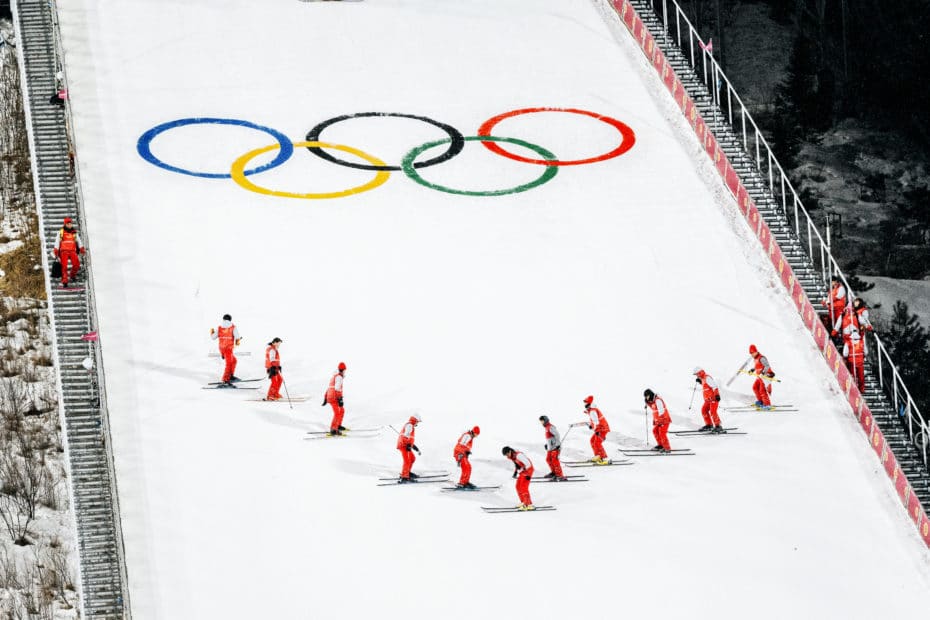You’ve probably heard that the United States instituted a diplomatic boycott of this year’s Olympics Games. So did other countries, like England and Australia.
For years, the Chinese government has faced allegations of human rights abuses against Uyghur muslims and other minorities in western China. While the Olympic Games have put this crisis in the headlines more prominently than ever before, it also begs the question: Why is China hosting the Olympics in the first place?
What’s going on in Xinjiang?
China is systematically committing human rights abuses like forced labor and sterilization against Uyghur Muslims in “reeducation camps.”
The rise of these human rights abuses is well-documented. To learn more, read Grace’s article on the topic.
Perhaps most alarming for US citizens is that Xinjiang is one of the largest producers of cotton, among other products, in the world. That means that it’s very likely that t-shirts, towels, and other goods that you buy were made with forced labor.
The US government has declared it a genocide. But what else is the world’s oldest democracy doing to stand up for human rights?
The Uyghur Forced Labor Prevention Act
In December, President Joe Biden signed the Uyghur Forced Labor Prevention Act (UFLPA) into law. This Act seeks to more strictly enforce prohibitions of imports made in Xinjiang with the presumption that any goods made in the region were made with forced labor. Currently, a task force and other federal agencies are determining how importers can ensure that goods were not made with forced labor– the act will go into effect in June 2022.
Previously, a withhold release order was meant to stop the importation of goods made with forced labor in Xinjiang. The UFLPA is a step in the right direction for US policy, as it could provide more bite through its enforcement mechanisms. To truly be effective, the enforcement of the act will need to stop the importation of goods made with forced labor at the very beginning of supply chains– not just the final steps of production.
The US is a major importer of cotton goods, so effectively enforcing the UFLPA could put a serious dent in China’s economy. But ensuring that American consumers have a clean conscience doesn’t change the reality of human rights abuses committed against Uyghurs.
The International Olympic Committee’s take on human rights and activism
Before the Games began, activists and various organizations called on the Games to be moved, with little to no response from the International Olympic Committee (IOC), the international body that runs the Olympics.
Leading up to this year’s Olympic Games, the IOC walked a fine line between vowing to stay out of Chinese affairs and expressing support for human rights. However, the two positions are contradictory.
Like major corporations promising to be carbon neutral by 2050, the IOC has promised to change. It says that it will take host nations’ human rights records into account starting in 2024–as the Washington Post points out, western democracies will host the Games through 2028, so it will be a while before the IOC can make good on its promise.
What’s a sports fan to do?
You’re no doubt confused about what to do with this information. But the Beijing Olympics can still be a time to celebrate China and its culture.
Some recommend an individual boycott of the Games–refusing to watch because of China’s abysmal human rights record. It’s true that just as we strive to avoid clothing made with forced labor, we should strive to consume entertainment that doesn’t support and celebrate a repressive government. But turning off the TV this month won’t end China’s human rights abuses.
A humanitarian challenge of this scale requires collective action, and better policy. But to start, join us this month in taking action through Impactfull.
- College Football, Ariana Grande, and Water - September 3, 2023
- Livestock and Land Use: How Are We Feeding The Planet? Impactfull April 2022 - April 19, 2022
- What Does Voluntourism Look Like? A Case Study in a Cambodian Orphanage - March 28, 2022
